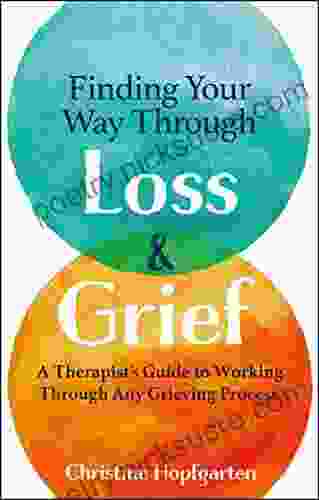Practice Leadership in Challenging Behaviour Services for Autism and Related Neurodevelopmental Conditions

5 out of 5
| Language | : | English |
| File size | : | 1505 KB |
| Text-to-Speech | : | Enabled |
| Enhanced typesetting | : | Enabled |
| Word Wise | : | Enabled |
| Print length | : | 235 pages |
| Screen Reader | : | Supported |
Challenging behaviours are a common feature of autism and related neurodevelopmental conditions. These behaviours can have a significant impact on the individual's quality of life and on the lives of their families and carers. Practice leadership is essential in ensuring that individuals with challenging behaviours receive the best possible care and support.
Key Principles of Practice Leadership
There are a number of key principles that underpin effective practice leadership in challenging behaviour services. These principles include:
- Person-centred care: Practice leaders should always put the individual's needs first and foremost. They should work with the individual and their family to develop a care plan that is tailored to their specific needs and goals.
- Evidence-based practice: Practice leaders should use evidence-based interventions that have been shown to be effective in reducing challenging behaviours. They should also keep up-to-date on the latest research in the field.
- Collaboration: Practice leaders should work collaboratively with other professionals, such as teachers, therapists, and social workers. They should also work with the individual's family and carers to ensure that everyone is working together to support the individual.
- Advocacy: Practice leaders should advocate for the rights of individuals with challenging behaviours. They should work to ensure that these individuals have access to the services and support they need to live full and meaningful lives.
Roles and Responsibilities of Practice Leaders
Practice leaders have a number of important roles and responsibilities, including:
- Developing and implementing care plans: Practice leaders work with individuals and their families to develop care plans that are tailored to their specific needs and goals. These care plans should include a range of evidence-based interventions to reduce challenging behaviours.
- Providing training and support to staff: Practice leaders provide training and support to staff on how to implement evidence-based interventions for challenging behaviours. They also provide ongoing supervision to staff to ensure that they are providing high-quality care.
- Monitoring and evaluating outcomes: Practice leaders monitor and evaluate the outcomes of care plans to ensure that they are effective in reducing challenging behaviours. They also use this information to make necessary changes to the care plan.
- Advocating for individuals: Practice leaders advocate for the rights of individuals with challenging behaviours. They work to ensure that these individuals have access to the services and support they need to live full and meaningful lives.
Challenges and Rewards of Practice Leadership
Practice leadership in challenging behaviour services can be a challenging but rewarding role. Some of the challenges of this role include:
- The high levels of stress and demand: Practice leaders often work in high-stress environments with individuals who have complex needs. This can be emotionally and physically draining.
- The need for constant learning: The field of challenging behaviour services is constantly evolving. Practice leaders need to keep up-to-date on the latest research and best practices in order to provide the best possible care.
- The difficulty in seeing results: It can often take months or even years to see significant results in reducing challenging behaviours. This can be frustrating for practice leaders and families.
Despite these challenges, practice leadership in challenging behaviour services can also be a very rewarding role. Some of the rewards of this role include:
- The opportunity to make a real difference in the lives of individuals: Practice leaders can help individuals with challenging behaviours to live more fulfilling and independent lives. This can be a very rewarding experience.
- The opportunity to learn and grow: Practice leaders have the opportunity to learn from a variety of professionals, including individuals with challenging behaviours, their families, and other professionals. This can be a great opportunity for personal and professional growth.
- The opportunity to be part of a team: Practice leaders work as part of a team to provide care and support to individuals with challenging behaviours. This can be a very rewarding experience.
Practice leadership in challenging behaviour services is a vital role that can make a real difference in the lives of individuals with challenging behaviours and their families. Practice leaders play a key role in developing and implementing care plans, providing training and support to staff, monitoring and evaluating outcomes, and advocating for individuals.
5 out of 5
| Language | : | English |
| File size | : | 1505 KB |
| Text-to-Speech | : | Enabled |
| Enhanced typesetting | : | Enabled |
| Word Wise | : | Enabled |
| Print length | : | 235 pages |
| Screen Reader | : | Supported |
Do you want to contribute by writing guest posts on this blog?
Please contact us and send us a resume of previous articles that you have written.
 Fiction
Fiction Non Fiction
Non Fiction Romance
Romance Mystery
Mystery Thriller
Thriller SciFi
SciFi Fantasy
Fantasy Horror
Horror Biography
Biography Selfhelp
Selfhelp Business
Business History
History Classics
Classics Poetry
Poetry Childrens
Childrens Young Adult
Young Adult Educational
Educational Cooking
Cooking Travel
Travel Lifestyle
Lifestyle Spirituality
Spirituality Health
Health Fitness
Fitness Technology
Technology Science
Science Arts
Arts Crafts
Crafts DIY
DIY Gardening
Gardening Petcare
Petcare Steve Newell
Steve Newell Daphne Poltz
Daphne Poltz L A Cotton
L A Cotton Guy Windsor
Guy Windsor Barb Musick
Barb Musick Richard C Schwartz
Richard C Schwartz Matthew Rudy
Matthew Rudy Skeleton Steve
Skeleton Steve Isaac Fitzsimons
Isaac Fitzsimons Sally Connolly
Sally Connolly R K Agarwal
R K Agarwal Michael Tan
Michael Tan Kalman Samuels
Kalman Samuels Paul Logothetis
Paul Logothetis Nicholas Clapp
Nicholas Clapp Paul Bloom
Paul Bloom John Baichtal
John Baichtal Darryl Belfry
Darryl Belfry Tara Haelle
Tara Haelle Frances Schultz
Frances Schultz Marie Cirano
Marie Cirano Curtis Collins
Curtis Collins Bob Cary
Bob Cary Dana James
Dana James Robin Esrock
Robin Esrock Jackie Bolen
Jackie Bolen Ichigo Takano
Ichigo Takano James C Scott
James C Scott Annabel Streets
Annabel Streets Seth Stephens Davidowitz
Seth Stephens Davidowitz Jennifer Dugan
Jennifer Dugan Christelle Dabos
Christelle Dabos Lily Siou
Lily Siou Good Books
Good Books Wendy Leo Smith
Wendy Leo Smith Maggie Downs
Maggie Downs John Gignilliat
John Gignilliat Ralph Waldo Emerson
Ralph Waldo Emerson Anna Wood
Anna Wood Ray Eye
Ray Eye Worley Faver
Worley Faver Miley Smiley
Miley Smiley Annaka Harris
Annaka Harris Bernard Stiegler
Bernard Stiegler Matthew Cobb
Matthew Cobb Margaret Rogerson
Margaret Rogerson Jeff Kuehl
Jeff Kuehl Sally Annjanece Stevens
Sally Annjanece Stevens Lane Demas
Lane Demas Steve Oldenburg
Steve Oldenburg Lisa Manterfield
Lisa Manterfield Ford R Bryan
Ford R Bryan Gwen Mckee
Gwen Mckee Elizabeth Wissner Gross
Elizabeth Wissner Gross Jennifer Kostick
Jennifer Kostick Heidi Kreider
Heidi Kreider Melissa Mortenson
Melissa Mortenson Graham Robb
Graham Robb Annette Burns
Annette Burns L Chapman
L Chapman William Goldman
William Goldman Steve Schwartz
Steve Schwartz Ralph Cockburn
Ralph Cockburn Sara Wickham
Sara Wickham Livia Bitton Jackson
Livia Bitton Jackson Sean Covey
Sean Covey Mark Matlock
Mark Matlock Elisabeth Haich
Elisabeth Haich Matthew Locricchio
Matthew Locricchio Naomi Tomky
Naomi Tomky Martin N Seif
Martin N Seif Dean Buonomano
Dean Buonomano Helen Adrienne
Helen Adrienne Boye Lafayette De Mente
Boye Lafayette De Mente Christine Field
Christine Field Holly Chism
Holly Chism Robert A Cook
Robert A Cook Rebecca A Moyes
Rebecca A Moyes Bruce Lockwood
Bruce Lockwood Sean Bartram
Sean Bartram Zach Hunter
Zach Hunter Susan Spicer
Susan Spicer Reinhard Kleist
Reinhard Kleist Jill Lepore
Jill Lepore Steve Grant
Steve Grant Fumio Sasaki
Fumio Sasaki Winton Porter
Winton Porter Jonathan R Brennan
Jonathan R Brennan Anna Della Subin
Anna Della Subin Harley Mcallister
Harley Mcallister Pierluigi Barrotta
Pierluigi Barrotta Eddie Jones
Eddie Jones Howard Means
Howard Means C W Farnsworth
C W Farnsworth Noel D Justice
Noel D Justice John Murray
John Murray Quinn Loftis
Quinn Loftis Chris Gore
Chris Gore Lina Beard
Lina Beard Jay Allan
Jay Allan Kristen L Mauk
Kristen L Mauk Mishka Shubaly
Mishka Shubaly David Berry
David Berry George James Grinnell
George James Grinnell Dannah Gresh
Dannah Gresh Charles Dickens
Charles Dickens Barak A Bassman
Barak A Bassman Timothy Ellis
Timothy Ellis Joy Dawson
Joy Dawson Paulo Guillobel
Paulo Guillobel Jackson Carter
Jackson Carter Bethany Saltman
Bethany Saltman Annalyn Ng
Annalyn Ng Dave Canterbury
Dave Canterbury Louise Katz
Louise Katz Steve Olson
Steve Olson Hannah Testa
Hannah Testa Larry Thornberry
Larry Thornberry Julian Of Norwich
Julian Of Norwich Ken Robinson
Ken Robinson Stacey Williams
Stacey Williams James Burke
James Burke Bert Mendelson
Bert Mendelson Sandy Camillo
Sandy Camillo Trevor Hartman
Trevor Hartman Walter Mischel
Walter Mischel Hill Harper
Hill Harper Finn Aagaard
Finn Aagaard M Terese Verklan
M Terese Verklan Michael F Nenes
Michael F Nenes Janine Marsh
Janine Marsh Scott Allan
Scott Allan Lori L Tharps
Lori L Tharps Peter Hathaway Capstick
Peter Hathaway Capstick Arcturus Publishing
Arcturus Publishing Kass Morgan
Kass Morgan Donna D Ignatavicius
Donna D Ignatavicius College Hippo
College Hippo Les Livingstone
Les Livingstone Nisha Garg
Nisha Garg Mikael Lindnord
Mikael Lindnord Chic Scott
Chic Scott Suzanne Girard Eberle
Suzanne Girard Eberle Ben Shneiderman
Ben Shneiderman Barbara Sealock
Barbara Sealock Rutger Bregman
Rutger Bregman Sandy Bodeau
Sandy Bodeau Barry Dainton
Barry Dainton Steven A Fino
Steven A Fino Jay Young
Jay Young Jonathan Franklin
Jonathan Franklin Linda K Miller
Linda K Miller J Scott Long
J Scott Long Omari Bouknight
Omari Bouknight Tim Young
Tim Young Horace Freeland Judson
Horace Freeland Judson Fox Fisher
Fox Fisher Steven Munatones
Steven Munatones Stuart Tomlinson
Stuart Tomlinson Susan G Solomon
Susan G Solomon Ray Moynihan
Ray Moynihan Nelson Dellis
Nelson Dellis Randall Fitzgerald
Randall Fitzgerald Zena Hitz
Zena Hitz Eric Greitens
Eric Greitens Alex Bromley
Alex Bromley Dan Gardner
Dan Gardner Anna Quindlen
Anna Quindlen Kathy Morey
Kathy Morey Julie C Meloni
Julie C Meloni Geoff Greig
Geoff Greig John Yates
John Yates Charles J Sanders
Charles J Sanders Holly Bourne
Holly Bourne Randy J Paterson
Randy J Paterson Neal Shusterman
Neal Shusterman Malcolm S Thaler
Malcolm S Thaler Justine Gregory Williams
Justine Gregory Williams Dan Koboldt
Dan Koboldt Vladimir Vasiliev
Vladimir Vasiliev Philip Reed
Philip Reed Timothy P Schultz
Timothy P Schultz Helge Kragh
Helge Kragh Scott P Sells
Scott P Sells Tony Osgood
Tony Osgood Jenny Jacobs
Jenny Jacobs Neel Doshi
Neel Doshi Steve Bennett
Steve Bennett Sally Black
Sally Black Anna Bright
Anna Bright Becky Wade
Becky Wade Julie A Ross
Julie A Ross Cb Droege
Cb Droege Steve Bowkett
Steve Bowkett Shawn Shallow
Shawn Shallow Chris Fregly
Chris Fregly Judy Corry
Judy Corry Gilbert J Grant Md
Gilbert J Grant Md Tanmay Mehta
Tanmay Mehta Stephen Tarsitano
Stephen Tarsitano Harold Davis
Harold Davis The Pinnacle Review
The Pinnacle Review H M Schey
H M Schey Scott Shupe
Scott Shupe Jean Barbre
Jean Barbre Todd Radom
Todd Radom Christopher T Coughlin
Christopher T Coughlin Zoe Moore
Zoe Moore Peter Wacht
Peter Wacht G Norman Lippert
G Norman Lippert Pawel Malczewski
Pawel Malczewski Jack Perconte
Jack Perconte Mark Mckinney
Mark Mckinney James F Twyman
James F Twyman Margaret Paul
Margaret Paul Emmett W Hines
Emmett W Hines W W Sawyer
W W Sawyer Ian Moulding
Ian Moulding C J Brown
C J Brown E R Truitt
E R Truitt Rick Sparkman
Rick Sparkman Robert A Conover
Robert A Conover Illysa R Foster
Illysa R Foster Roger Hall
Roger Hall William P Young
William P Young David Soucie
David Soucie Joyce Meyer
Joyce Meyer Katie Krimer Ma Lcsw
Katie Krimer Ma Lcsw James C Zimring
James C Zimring Johnny Chuong
Johnny Chuong Genevieve Mckay
Genevieve Mckay Dan Vogel
Dan Vogel Chase Hassen
Chase Hassen Barry Schwartz
Barry Schwartz Stephanie Cave
Stephanie Cave Hope Comerford
Hope Comerford Ruby Mcconnell
Ruby Mcconnell Illustrated Edition Kindle Edition
Illustrated Edition Kindle Edition R A Salvatore
R A Salvatore Junior Health Institute
Junior Health Institute Michael Witwer
Michael Witwer Damian Hall
Damian Hall James P Sethna
James P Sethna Glen E Clarke
Glen E Clarke Anna B Doe
Anna B Doe John Pullen
John Pullen Craig Ramsay
Craig Ramsay Martin Meredith
Martin Meredith Bob Madgic
Bob Madgic Jemar Tisby
Jemar Tisby Maya Van Wagenen
Maya Van Wagenen L J Martin
L J Martin Mary E Pearson
Mary E Pearson Michael Burnett
Michael Burnett Thomas A Garrity
Thomas A Garrity Krista Marson
Krista Marson Brian Daccord
Brian Daccord Dorothy Ours
Dorothy Ours Kyung Won Chung
Kyung Won Chung Jenna Evans Welch
Jenna Evans Welch June Hur
June Hur Lily Dunn
Lily Dunn Sparknotes
Sparknotes Jay Spence
Jay Spence Carl Mckeating
Carl Mckeating Tim Cahill
Tim Cahill Ann Valett
Ann Valett Richard Appleton
Richard Appleton Chris Bailey
Chris Bailey Mike Roberts
Mike Roberts Will Kurt
Will Kurt Kristian Berg
Kristian Berg Buddy Lee
Buddy Lee Stan Gibilisco
Stan Gibilisco Alexander L Chapman
Alexander L Chapman Kate Mcvaugh
Kate Mcvaugh Morton Manus
Morton Manus Anna Lowenhaupt Tsing
Anna Lowenhaupt Tsing Crystal Cook
Crystal Cook P M Gilbert
P M Gilbert Anna Flores Locke
Anna Flores Locke Cade Courtley
Cade Courtley Peter Watson
Peter Watson Paul Mendelson
Paul Mendelson Marjorie Savage
Marjorie Savage Stacey A Shannon
Stacey A Shannon Karen Bassie Sweet
Karen Bassie Sweet Nancy Marie White
Nancy Marie White Sharon Rowley
Sharon Rowley Geryn Childress
Geryn Childress Dave Whitlock
Dave Whitlock Daniel Isberner
Daniel Isberner John Dickson
John Dickson Rebecca Carroll
Rebecca Carroll Katharine Beals
Katharine Beals Anne Sylvie Malbrancke
Anne Sylvie Malbrancke Dave Hughes
Dave Hughes Tyler Richards
Tyler Richards Harnarayan Singh
Harnarayan Singh Gill James
Gill James Claire Walter
Claire Walter John Van Wyhe
John Van Wyhe Gloria Chadwick
Gloria Chadwick M Shawn Copeland
M Shawn Copeland Zach Codings
Zach Codings Gemma Bray
Gemma Bray Monroe Wildrose
Monroe Wildrose Jacob Ward
Jacob Ward Louis Van Dyke
Louis Van Dyke Joanna Wells
Joanna Wells Lisa Randall
Lisa Randall Julian Havil
Julian Havil Joshua Shifrin
Joshua Shifrin Sarah Stodola
Sarah Stodola Marva Boatman
Marva Boatman Asker Jeukendrup
Asker Jeukendrup Vittal S Anantatmula
Vittal S Anantatmula Nicholas Thomas
Nicholas Thomas Melanie Dickerson
Melanie Dickerson Michael Hodgson
Michael Hodgson Tali Sharot
Tali Sharot Dante Fortson
Dante Fortson Prime Hall
Prime Hall Oskar Morgenstern
Oskar Morgenstern Danny Jones
Danny Jones Peyton Curley
Peyton Curley Kennedy Achille
Kennedy Achille Steven G Krantz
Steven G Krantz Dr Sarita Uhr
Dr Sarita Uhr Bella Forrest
Bella Forrest John Edwards
John Edwards Jessa Stone
Jessa Stone Ling Seto
Ling Seto Ann Zaprazny
Ann Zaprazny Jason
Jason Caroline Miller
Caroline Miller Susan Straub
Susan Straub Anna Grafl
Anna Grafl Angela Saini
Angela Saini John Dunn
John Dunn Ann Marie Brown
Ann Marie Brown David Woods
David Woods L J Smith
L J Smith Stefan Hollos
Stefan Hollos Steven Callahan
Steven Callahan Mordecai Orimiladeye
Mordecai Orimiladeye Jennifer L Lopez
Jennifer L Lopez Breeda Bermingham
Breeda Bermingham Creative Guy
Creative Guy Anna Watson
Anna Watson Sherry B Ortner
Sherry B Ortner Jenn Bennett
Jenn Bennett Robert F Boszhardt
Robert F Boszhardt Roy R Grinker
Roy R Grinker Suzanne Clark
Suzanne Clark Hanumant Deshmukh
Hanumant Deshmukh Sharman Apt Russell
Sharman Apt Russell Ann Mccallum Staats
Ann Mccallum Staats Aaron Mahnke
Aaron Mahnke Tarani Chandola
Tarani Chandola Christine Hopfgarten
Christine Hopfgarten Gary Chapman
Gary Chapman Dr Harper
Dr Harper Robby Weber
Robby Weber Adil E Shamoo
Adil E Shamoo Linda Lewis Alexander
Linda Lewis Alexander George Lakoff
George Lakoff Josephine Mccarthy
Josephine Mccarthy Steven Yellin
Steven Yellin Sajni Patel
Sajni Patel Sheela Raja
Sheela Raja Ellen Dugan
Ellen Dugan Jacqueline Winslow
Jacqueline Winslow Robert Gerver
Robert Gerver Ariel Dalfen
Ariel Dalfen Peter L Falkingham
Peter L Falkingham Patricia Ladis
Patricia Ladis Darcie Little Badger
Darcie Little Badger Anna Ivey
Anna Ivey Frank Thomas
Frank Thomas Melvin Fitting
Melvin Fitting Peter Richmond
Peter Richmond Emily J Taylor
Emily J Taylor Dave Hall
Dave Hall Richard A Ruth
Richard A Ruth Richard Mcafee
Richard Mcafee John O Sullivan
John O Sullivan Susan M Schneider
Susan M Schneider Richard A Swanson
Richard A Swanson Joey Myers
Joey Myers Ann Voskamp
Ann Voskamp Shelley Emling
Shelley Emling Stephen J Pyne
Stephen J Pyne Lizzie Collingham
Lizzie Collingham Bren Smith
Bren Smith Luke Schumacher
Luke Schumacher Bob Labbe
Bob Labbe Julie Creffield
Julie Creffield J E Esslemont
J E Esslemont Charlene Beswick
Charlene Beswick Wayne C Booth
Wayne C Booth Freddy Silva
Freddy Silva Suzanne I Barchers
Suzanne I Barchers Pradeepa Narayanaswamy
Pradeepa Narayanaswamy Jonathan Pd Buckley
Jonathan Pd Buckley Earl Hipp
Earl Hipp Christopher Seddon
Christopher Seddon Antonio Robert
Antonio Robert Roy M Wallack
Roy M Wallack Julia Galef
Julia Galef Patricia Romanowski Bashe
Patricia Romanowski Bashe Stefanie Japel
Stefanie Japel Sara Dyer
Sara Dyer Lexi Ryan
Lexi Ryan Patrick Torsell
Patrick Torsell Kristina Cowan
Kristina Cowan Eleanor J Sullivan
Eleanor J Sullivan Michael G Manning
Michael G Manning Sukhveer Singh
Sukhveer Singh Chronicle Books
Chronicle Books Victor Stringer
Victor Stringer Kendall Coyne
Kendall Coyne Douglas Perry
Douglas Perry Caryl Phillips
Caryl Phillips Henry Dillon
Henry Dillon Larry Semento
Larry Semento Horace Kephart
Horace Kephart Julie Plagens
Julie Plagens Rick Page
Rick Page Clive Scarff
Clive Scarff Michael Labossiere
Michael Labossiere Joe Hyams
Joe Hyams Anna Crowley Redding
Anna Crowley Redding Cathy Glass
Cathy Glass H Jerome Chapman
H Jerome Chapman Laurie Varga
Laurie Varga Todd Denault
Todd Denault Margaret Jean Langstaff
Margaret Jean Langstaff Christina Henry De Tessan
Christina Henry De Tessan Silvia M Lindtner
Silvia M Lindtner Zach Davis
Zach Davis Ellen Painter Dollar
Ellen Painter Dollar Sean Purchase
Sean Purchase Adele Faber
Adele Faber Valerie Hansen
Valerie Hansen Shannon Vallor
Shannon Vallor Helen E Lees
Helen E Lees Philip Gibson
Philip Gibson Sam Demas
Sam Demas Mike Reilly
Mike Reilly
Light bulbAdvertise smarter! Our strategic ad space ensures maximum exposure. Reserve your spot today!

 George MartinA Comprehensive Guide to Venomous Snakes and Their Mimics: Identifying and...
George MartinA Comprehensive Guide to Venomous Snakes and Their Mimics: Identifying and... James JoyceFollow ·4.5k
James JoyceFollow ·4.5k Ian PowellFollow ·10.4k
Ian PowellFollow ·10.4k Matthew WardFollow ·10.4k
Matthew WardFollow ·10.4k Leo MitchellFollow ·3.4k
Leo MitchellFollow ·3.4k Anton FosterFollow ·4.2k
Anton FosterFollow ·4.2k Harry HayesFollow ·15.5k
Harry HayesFollow ·15.5k Anthony BurgessFollow ·5k
Anthony BurgessFollow ·5k Stan WardFollow ·9.5k
Stan WardFollow ·9.5k

 Aldous Huxley
Aldous HuxleyMorgenstern: A Classic Tale of True Love and High...
Morgenstern is a...

 Beau Carter
Beau CarterThe Oasis Guide to Asperger Syndrome
What is Asperger Syndrome? Asperger...

 Chadwick Powell
Chadwick PowellFinding Your Way Through Loss Grief: A Therapist S Guide...
Grief is a natural human emotion that we...
5 out of 5
| Language | : | English |
| File size | : | 1505 KB |
| Text-to-Speech | : | Enabled |
| Enhanced typesetting | : | Enabled |
| Word Wise | : | Enabled |
| Print length | : | 235 pages |
| Screen Reader | : | Supported |
















